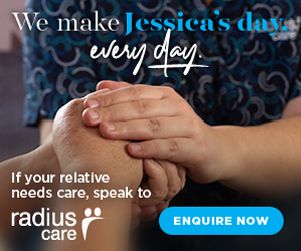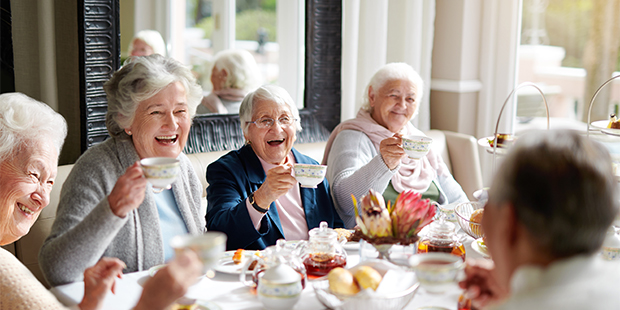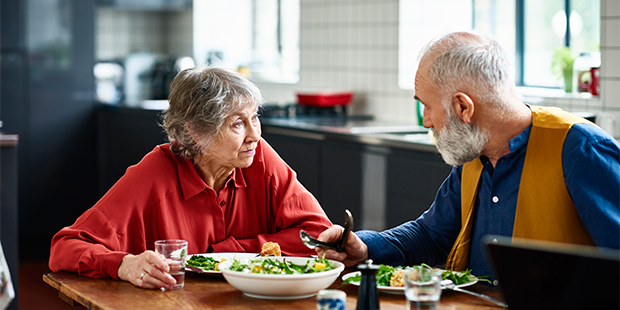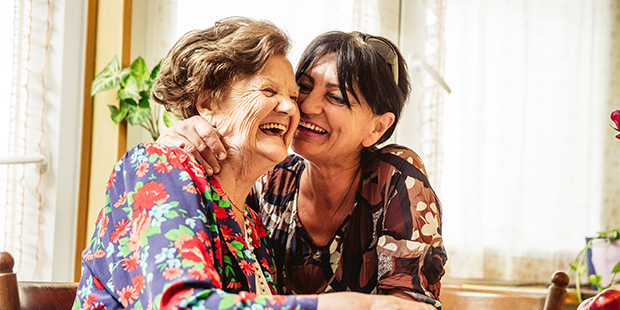Guilt an issue in care of elderly
Burn-out, health problems and guilt can affect family members looking after the frail & aged.
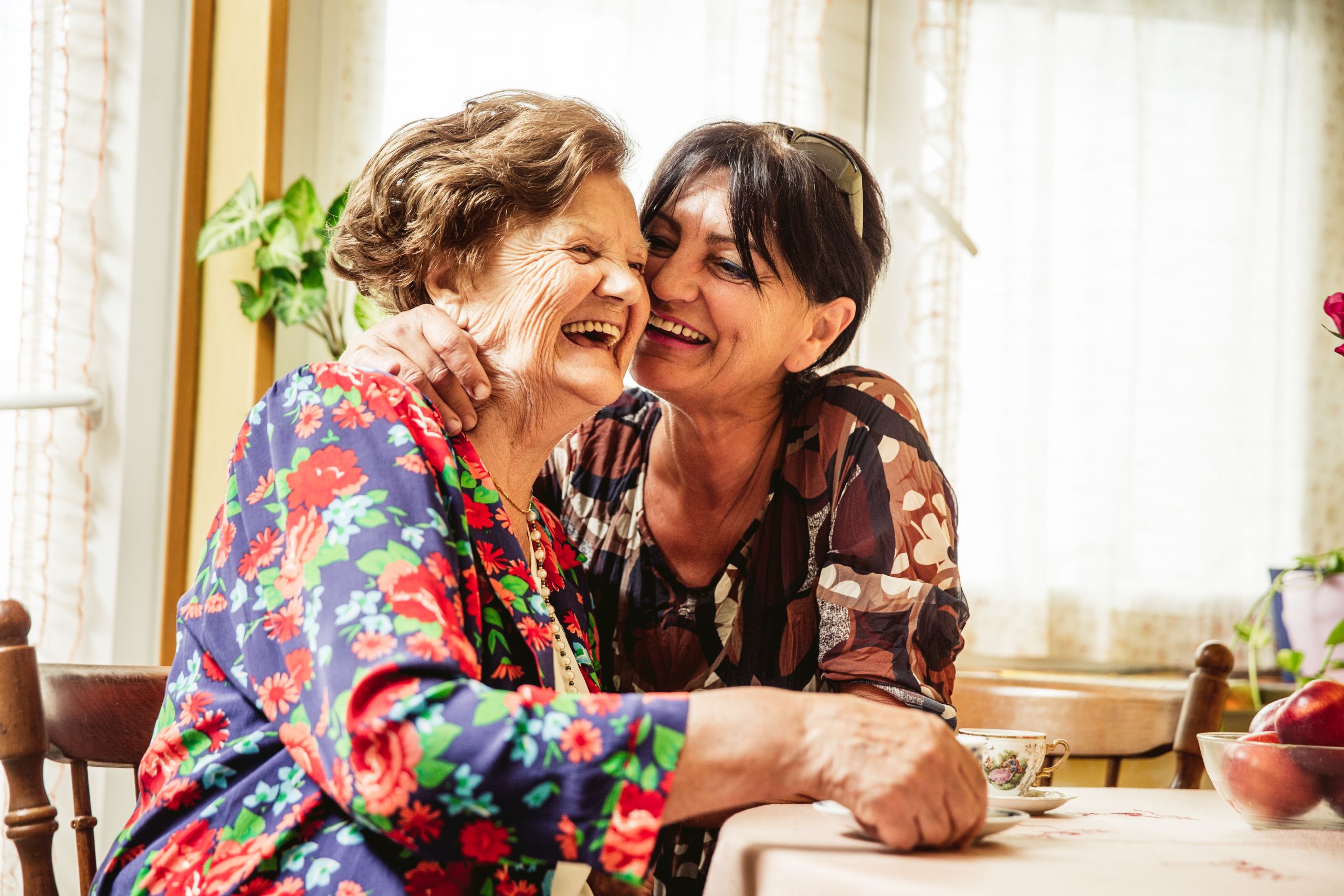
Kathy Smith, a 65-year-old Napier grandmother, likes nothing more than going out for walks, playing a bit of tennis and catching up with friends. Yet she’s not been able to do any of that for eight years because she’s been caring for her mother and Kathy’s partner, who is suffering from dementia.
Every bit of her spare time has been spent caring for her frail and ailing 90-year-old mother as well as Kathy’s 86-year-old partner while, somehow, holding down a fulltime job managing a gift shop at the Silky Oak chocolate factory in Napier.
“It’s been a huge tie,” she says. “It’s been extremely trying at times and there were moments when I was literally at my wits end. It was especially overwhelming caring for my partner but I knew I had to keep going until I found another solution for him – like going into (residential) care.”
Smith is now getting some of her time back. Her mother has been in the Radius Hampton Court rest home in Napier for over two years - and just last month her partner moved into Hampton Court as well.
“It’s a huge weight off my shoulders knowing they’re both safe and secure,” she says.
Smith’s story is one repeated up and down New Zealand. A 2016 New Zealand Aged Care Association (NZACA) report revealed that, as the number of elderly Kiwis rise, there is increasing pressure on families to provide more care at home. By 2016, those aged 65 and over numbered 700,000, a figure projected to double to over 1.4 million by 2048, with the 85-plus cohort rising from 83,000 in 2016 to a projected 315,000 in 2048.
“These numbers show a rapidly ageing population over the next 20-30 years and a big increase in the over 85 cohort as people live longer,” says Simon Wallace, chief executive of the New Zealand Aged Care Association which also forecasts that there will be only 52,000 residential care beds available by 2026. “This will put huge pressure on the rest home industry.”
An estimated 1 in 10 New Zealanders now look after someone close to them who need help with everyday living – 40 per cent of whom look after frail, ill or disabled older people in an in-home setting, assisting with basic functions like toileting and dressing.
Such is the pressure on them, some “burn out”, ending up with health problems of their own while many family carers report feelings of distrust, anger or depression.
Roy Reid, chair of the Grey Power Federation’s age care committee, says in the report: “Often caregivers feel guilty about not being there enough, about the decisions they need to make and about asking and not asking for help; carers also struggle with the feeling that they are somehow letting down their elderly relative by looking at aged residential care as an option.”
That’s in spite of the fact that the NZACA research of 300,000 people in care shows that about three-quarters had improved health stability and just under two-third suffered less pain after going into care.
Although Smith has endured huge demands on her time, she says she has never had feelings of guilt: “Yes, I’ve had to put my life on hold. I’d normally be playing tennis, cycling, going for walks or going out with friends, but I’ve not been able to any of that. The only time in eight years I travelled out of Hawkes Bay was to attend a funeral in Auckland.
“But I know I’ve given them both 110 per cent; it’s what you do for your parents in particular; it’s like a role reversal from when they looked after us as kids.”
It began for Smith eight years ago after her mother suffered a stroke. Although professional carers were on hand during the day, Smith attended to her mum constantly, visiting her every day after work and on weekends.
“I made all her meals, took her grocery shopping and did simple things for her she couldn’t do herself, like pulling the curtains over at night,” she says. “She was happy staying at home, my Dad built the house (he passed away in 2001) and Mum had lived there for 70 years.”
But, after suffering a series of falls at home and being assessed as needing residential care, her mother moved to Hampton Court.
“Radius have been outstanding,” says Smith. “Mum feels safe and secure and she’s a lot more relaxed. Although she can no longer speak following a recent medical event, we can communicate and we have lots of laughs. There’s nothing wrong with her brain.”
Yet while she was keeping a close eye on her mother, Smith’s partner’s health was deteriorating and she was effectively caring for him too.
“His dementia rapidly worsened and his mobility had been appalling for some time,” she says. “It was a very, very trying situation; He had carers in during the day but I’d still worry about what he’d been up to while I was at work, whether he’d had a fall go or something worse.
“He was also diagnosed with Parkinson’s disease and it was obvious for some time he needed residential care.”
Smith says her partner can no longer walk, but seems to have accepted life at Hampton Court: “I said to him ‘you will be here for a very long time so just enjoy it’ and in one of his lucid moments he told me he wasn’t ready to go home, which I thought was good.”
Smith says her experience with Radius shows rest homes provide a safe and secure environment, although she believes they are only as good as the staff they have.
For now, however, she is looking forward to spending more time with her young grandson – and getting to live her own life again.
For more information visit Radius Care.


